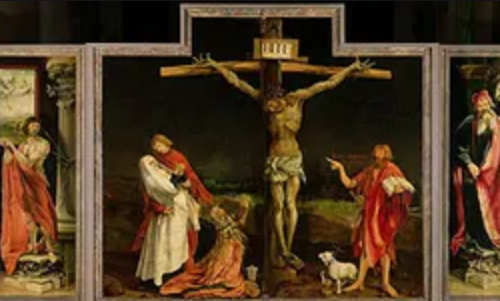If I were to be asked what books sum up the ethos of Harry’s Place, I would say that they include Paul Berman’s 2003 book, Terror and Liberalism and Nick Cohen’s 2007 book, What’s Left? How Liberals Lost Their Way. There are of course other books that would suit, and I cannot speak for all the writers of this blog, but my guess is these two will come up as suggestions by the majority.
Berman is back with a new book: The Flight of the Intellectuals. No disrespect is meant to either Paul Berman or Nick Cohen if I were to say that an alternative title for Berman’s latest would be: What’s Up? How the Intellectuals Lost Their Way. I am sure that readers of this blog will appreciate this allusion.
Gene has previously recommended reading Berman’s 28,000 word essay, “Who’s Afraid of Tariq Ramadan?” that was published in The New Republic in 2007. It is to the credit of The New Republic that they published such a long essay and this is not lost on Berman. Flight of the Intellectuals is an extension of that essay and it is dedicated to the publisher and literary editor of that magazine. The book is one long essay – a passionate polemic. It is an attack on those intellectuals and journalists who have praised or sympathetically written about Tariq Ramadan, the Swiss-born academic and author whose views are often sought by western news media on matters pertaining to Islam and Islamism. This support of Ramadan is made all the worse by the same intellectuals, who should know better, making derogatory comments about Ayaan Hirsi Ali, a woman who was born in Somalia but escaped to Europe rather than go through with an arranged marriage, became a politician in Holland, received death threats for collaborating on a film that dealt with domestic violence against Muslim women and wrote her moving autobiography, Infidel.
Tariq Ramadan’s grandfather was Hassan al-Banna, the founder of the Muslim Brotherhood. Berman wonders (pp.44-5) how best “to describe al-Banna’s larger ideal, his world-dominating Caliphate.” He answers his own question: “fascism. A terrible word. There is no avoiding it though.” Berman notes how al-Banna admired and showed solidarity with Haj Amin al-Husseini, the Grand Mufti of Jerusalem. The mufti promoted the Nazi ideology of killing Jews. Berman quotes him (p.80): “In the struggle against Jewry, Islam and National Socialism are very close.” He explains (p.87) how in 1942, the mufti made a speech accusing Jews of dominating America, being behind communism, and so on. He quotes (p.92) a further, more famous, speech that the mufti made and was broadcast on Radio “Berlin in Arabic” in 1944: “Kill the Jews wherever you find them. This pleases God, history and religion. This serves your honour. God is with you.”
Berman discusses Sheikh Yusuf al-Qaradawi, the Egyptian Muslim scholar and Islamist preacher. He notes (p.78) that Qaradawi is “a hugely admired figure for Tariq Ramadan” and “revered for his fidelity to al-Banna and al-Banna’s political tradition.” He cites one of Qaradawi’s broadcasts from 2009 (p.92): “Oh Allah, take this oppressive, Jewish, Zionist band of people. Oh Allah, do not spare a single one of them. Oh Allah, count their numbers, and kill them, down to the very last one.” I suspect that Berman is accurate when he says that this speech “suggests… that, back in the 1940s, when Qaradawi was a young man, something in the mufti’s rhetoric and in the larger Arabic-language Nazi propaganda resonated powerfully enough to leave a lasting echo.” Berman also notes (p.188) that not only did Qaradawi admit to supporting Hamas, the Islamic Jihad, and Hezbollah, he also explicitly stated “I support martyrdom operations.” It is a mystery to Berman (p.189) how “a man of this sort [has] ended up commanding a moral and religious prestige in the mainstream.”
In an interview that he has provided to Michael J. Totten, Berman succinctly described the liberal credentials of Tariq Ramadan:
If you listen to Ramadan for fifteen minutes, you will learn that he says all the right things, whatever a liberal-minded person would want such a man to say…. Unfortunately, the sixteenth minute arrives, and, if you are still paying attention, you learn that he wants us to revere the most vicious and reactionary of Islamist sheikhs — the people who promote violence, bigotry, totalitarianism, and terror. The sixteenth minute is not good. The liberal quality of his thinking falls apart entirely.
But it is in The Flight of the Intellectuals (p.201) that Berman best sums up Ramadan’s stand on terrorism:
1) Ramadan condemns terrorism. 2) He wants to understand terrorism, though not to justify it. 3) He understands terrorism so tenderly that he ends up justifying it. 4) He justifies it so thoroughly that he ends up defending it. And perhaps his message contains yet another element, which is not hard to detect in some of his writings, to the effect that: 5) who are you to question Tariq Ramadan about terrorism? Are you a racist? A notorious Zionist? An enemy of Islam? And Hassan al-Banna was the greatest figure of the last one hundred and fifty years, and Said Ramadan [Tariq’s father] was a pious and heroic Muslim, and long live Sheikh Qaradawi, the mufti of martyrdom operations!
But it is not just terrorism that is worrying about Tariq Ramadan. In a debate broadcast on French television in 2003, Ramadan was asked by Nicolas Sakorzy, then the French minister of the interior and now President of France, about whether stoning to death was the proper punishment for adultery. Berman states (p.214) that something Ian Buruma was correct about in his 2007 article on Ramadan in the New York Times Magazine was that Ramadan “replied that he favoured a ‘moratorium’ on the such practices but refused to condemn the law outright.” Berman is appalled (p.216) that Olivier Roy, a French expert on Islam and Muslim culture, took the view, as interpreted by Berman, that “Ramadan’s argument on stoning was more than understandable – it was positively progressive.” Likewise, Berman is not impressed (pp.218-19) with Buruma’s view of the matter which Berman sums up as, “Ramadan made the right choice in refusing to condemn the practice of stoning women to death …[as it] maintain[s] his viability on streets like Brick Lane.”
Berman notes (pp.221-2) that more recently, in 2009, Ramadan has proposed setting up “fatwa committees” combined of both secular and Islamic scholars to debate controversial Islamic topics. But Berman concludes (p.239) that these committees would be a sham as they would contain people such as Yusuf al-Qaradawi, who Ramadan reveres. Consequently Ramadan’s idea “adds up to a proposal to leave the ultimate decisions to the worst sorts of violent and obscurantist preachers.” As such, “His commitment to ethical thinking turns out to be worthless. Tariq Ramadan remains a man who cannot see that a monstrous figure like Yusuf al-Qaradawi is a monstrous figure.”
Berman is appalled that Timothy Garton Ash, in the pages of the Guardian, could praise Jamal al-Banna, Hassan al-Banna’s brother, and, at the same time, condemn Ayaan Hirsi Ali. He points out (p.279) that the very same Jamal al-Banna that Garton Ash praised, justified and encouraged suicide bombings in Israel, and referred to the action of the 9/11 terrorists as “extremely courageous,” “dreadful and splendid” and in opposition to the “barbaric capitalism” of the United States. In contrast, Berman notes (p.287) “Never once has Hirsi Ali gone on TV urging anyone to commit suicide.” He therefore admits (pp.287-8) to being “genuinely puzzled…[why] a liberal journalist as sophisticated and experienced as Garton Ash [would] gaze at Jamal a-Banna, and at Ayaan Hirsi Ali, and find something preferable in Jamal al-Banna.”
Berman has a damning conclusion (pp.284-5):
The heart of a problem… [is] the strange fact that, in a modern political world shaped by the rise of the Islamists, even some of the most attractive thinkers tend, if they have come under an Islamist influence, to have a soft spot for suicide terrorism. And a soft spot for anti-Semitism.
My only negative comment on The Flight of the Intellectuals is that the book has no endnotes. That is not to say that Berman does not mention his sources, as he does in the main text, but endnotes would have allowed him to include not just his reference, but also the page numbers of books he has used. Some readers will not be bothered by this omission. I am.
This criticism does not invalidate my overall conclusion that The Flight of the Intellectuals should be purchased or borrowed, but certainly read, by anyone with an interest in the portrayal of Islamism by Western intellectuals.


